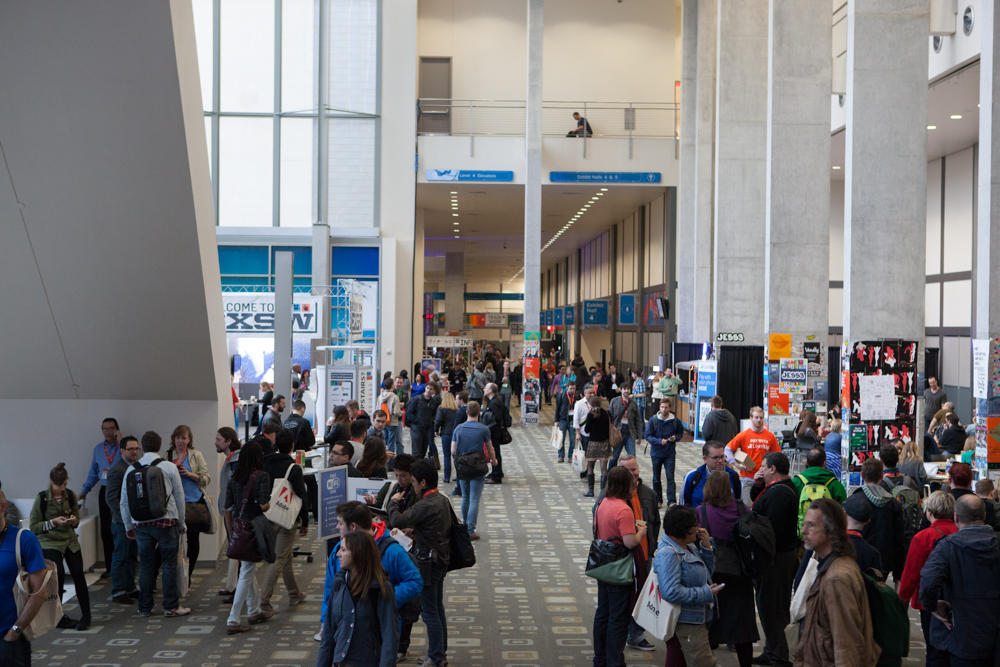By Omar L. Gallaga
Austin American-Statesman.
South by Southwest Interactive on Friday worked to reverse a public-relations disaster by announcing an Online Harassment Summit for its March 2016 festival.
The March 12 event would reinstate two online gaming-related panels that had been canceled on Monday to widespread criticism.
It is to include about 20 more speakers to discuss harassment, particularly toward women.
But it remained unclear if SXSW’s effort to create meaningful dialogue out of a week of scathing criticism against the festival would go as planned. According to a report on the website Re/code, participants in one of the reinstated panels, “Level Up: Overcoming Harassment in Games,” were considering not attending, saying they weren’t told in advance that another panel including proponents of the GamerGate movement also would be brought back.
“This feels like another misstep from SXSW. Having an entire summit on anti-harassment could have been a really great endeavor,” Caroline Sinders, a technologist and panel organizer, said in a statement to Re/code. “This just seems like further proof that SXSW does not understand harassment or how to produce a safe, inclusive and tolerant space for speakers and attendees.”
Looming over the proceedings is GamerGate, a year-old online movement that started as a controversy over video-game reviews and a female video game developer but has since mushroomed into an often vitriolic campaign that proponents say is about freedom of speech and fairness in games journalism but which critics say is a misogynistic hive of anti-feminism and threats that have gone beyond the online realm.
Since the Monday cancellation, SXSW Interactive has faced one of its biggest challenges in its 22-year history, attempting to fix what festival director Hugh Forrest acknowledged in a Friday blog post was a mistake.
“By canceling two sessions we sent an unintended message that SXSW not only tolerates online harassment but condones it, and for that we are truly sorry,” he wrote.
Previously, Forrest had said “Level Up” and another panel, “SavePoint: A Discussion on the Gaming Community,” would be canceled because of threats of on-site violence. It appears that threats were made against participants of both panels, and the festival has been working with Austin police to investigate the threats.
The March 12 summit, which SXSW said will be livestreamed for free, is to include politicians, journalists, activists, researchers, game developers and law experts, from U.S. Rep. Katherine Clark, D-Mass., and Jonathan Greenblatt, CEO and national director of the Anti-Defamation League, to former Texas gubernatorial candidate Wendy Davis, who tweeted about the situation earlier in the week and was invited to participate.
While the initial cancellation was met with disgust by women’s rights advocates and proponents of the GamerGate movement alike, things went from bad to worse Tuesday when media companies BuzzFeed and Vox Media said they would pull out of the festival entirely for 2016 if the canceled panels weren’t reinstated and issues of harassment addressed. BuzzFeed and Vox Media haven’t commented further on their plans.
The criticism led to a flurry of behind-the-scenes activity at SXSW that included communications with potential summit participants and a few brief emails with members of the festival’s programming committee. The programming committee, whose chief role is to vote on panels as part of the festival’s PanelPicker process, wasn’t consulted on the cancellation and was informed of the summit on Friday.
“Sad that it didn’t happen from the start,” a member of the programming committee, who asked not to be named, said in an online message to the American-Statesman. “I think it cost SXSW a LOT of perceived value.”
The PanelPicker process, which also includes a public vote on potential festival panels, appears to be where the trouble started. The “Level Up” panel was the target of negative posts, which Sinders said the festival was warned about as early as August. While the comments on the panel proposal were eventually closed, Sinders said emails she sent to the festival about adding security were met with indifference and condescension.
The festival hasn’t addressed those concerns publicly and said it would be doing no interviews after the summit announcement.
Nick Robalik of the New York video game company PixelMetal was one participant of the original “SavePoint” panel who wasn’t listed as a participant at the Online Harassment Summit. He said he hasn’t been contacted by SXSW Interactive about attending the summit and was told by a reporter he’s been accused of harassment at a gaming event, a claim he denies.
“They’ve actively avoided being in touch,” Robalik said in an online message to the Statesman. “Hugh (Forrest) has been pushing off any form of contact to ‘maybe next week.'”
Members of GamerGate have been accused of publishing private, identifying information about its enemies online (known as “Doxing”), particularly women in the games industry, making death threats at public-speaking events and even calling in false threats to activate SWAT teams and send them to someone’s address (a practice called “Swatting” that happened to Sinders’ mother).
The “SavePoint” panel was to offer a pro-GamerGate stance, though it was never described as such in the original panel description. That panel was brought to the festival late in the PanelPicker process, and SXSW has been criticized for pushing it through without a public vote and as an effort to create a two-sided debate that some fest participants say they don’t want.
SXSW’s miscalculation and the GamerGate fracas in general point to the increasingly hostile online environment many women in technology, particularly in video games, face.
As the GamerGate movement gathered steam in late 2014, several women, including Anita Sarkeesian and Brianna Wu, gained attention for speaking out against harassment both online and off, including death threats and bomb threats called in at speaking engagements.














































































































































































































































































































































































